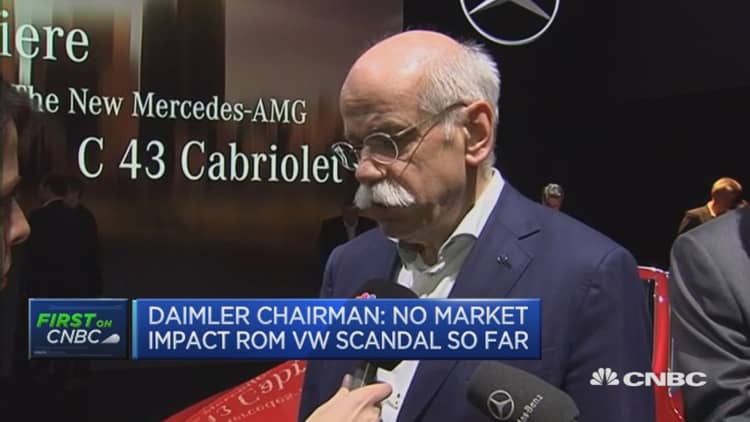
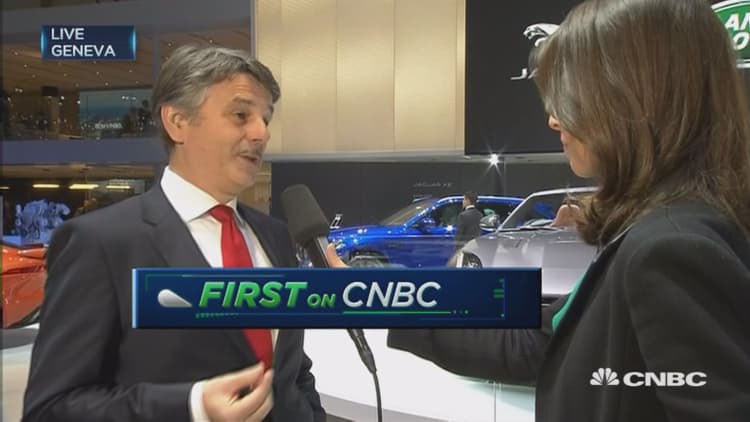
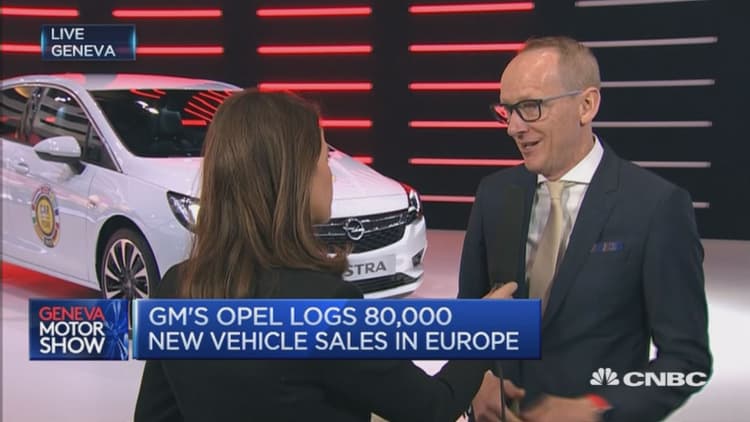
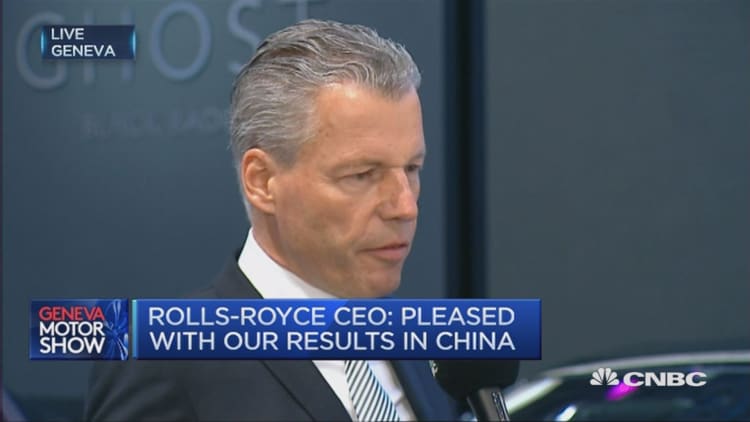
Daimler is sticking to the rules governing emissions levels for its cars, the German automotive company's chief executive told CNBC, as the diesel scandal surrounding the car trade shows no signs of dissipating
Dieter Zetsche's comments come amid media reports Monday that the U.S. Environmental Protection Agency had requested information from Daimler's Mercedes-Benz brand to explain emissions levels in some of its cars.
"When we talk about diesel specifically in our sales, we see no change in Europe where the bulk of our diesel engines is sold," Dieter Zetsche told CNBC.
"In the take rate for diesels we have no conversations in our showrooms about that topic so from the market side we see no impact so far."
He did concede that the industry as a whole had a credibility issue.
A spokesman for Daimler told Reuters that the group was fully cooperating with the request for information. According to the news agency, the EPA request for information came in response to a class-action lawsuit filed in February, which Daimler told Reuters was wholly unfounded and without merit.
Meanwhile the CEO of Jaguar Land Rover told CNBC the group was committed to lowering emissions. The group's newest F-type SVR made its debut it the Geneva Motor Show – the fastest car the group has ever built. Ralph Speth said the group was striving to find a balance between environmentally friendly, low-emission cars and high performance.
"We are absolutely committed the better air quality," he said.
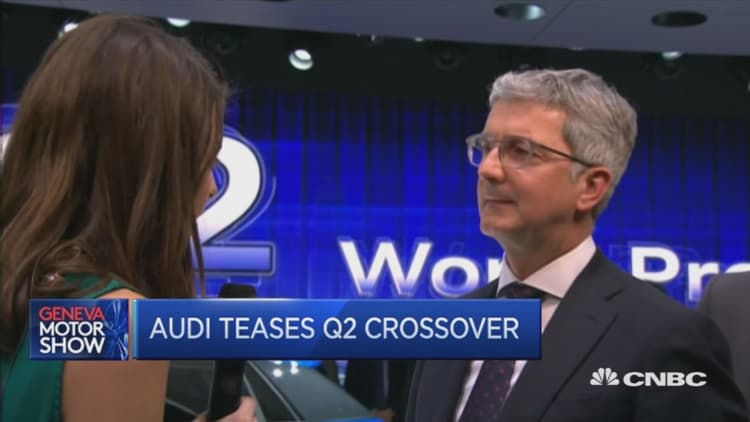
Fellow luxury car maker Rolls-Royce unveiled a new "black badge line" in Geneva, as it seeks to attract more young customers such as successful entrepreneurs.
Sales in China had slowed for the group, CEO Torsten Müller-Ötvös said. It had been overtaken by the Middle East which is now the company's second-biggest market. The U.S. remains its biggest market and sales in Russia remained strong as rich Russians placed their rubles in "real" assets such as cars.
"I wouldn't say that the world is in doom and gloom. I'm still quietly confident for a good year in 2016," Müller-Ötvös told CNBC.
Some of the group's luxury peers, such as Maserati, are meanwhile unveiling SUVs to capture a slice of that popular market.
Rolls Royce was also working on an SUV, Müller-Ötvös stressed, as its target group gets broader.
Audi's new Q2, which made its debut at the Geneva Motor Show, is further evidence that automakers are betting big on SUVs.
The smaller model marks an attempt by the group to enter into the lower end of the SUV segment. It hopes to attract new, younger customers with the new model.
Mass market concerns
At the lower end of the market, Opel's chairman highlighted the "difficult environment" the group continues to work in.
Last year it exited Russia after plunging sales and it is having to deal with currency headwinds and new regulatory standards.
"We want to grow but we are really working on the cost, which is absolutely key here," Karl-Thomas Neumann said.
The group, which operates under the Vauxhall brand in Britain, would not cut production in the event that Britain voted to leave the EU, as it expects to grow in the U.K., Neumann said. Its biggest concern regarding a possible "Brexit" was the evolution in sterling.


